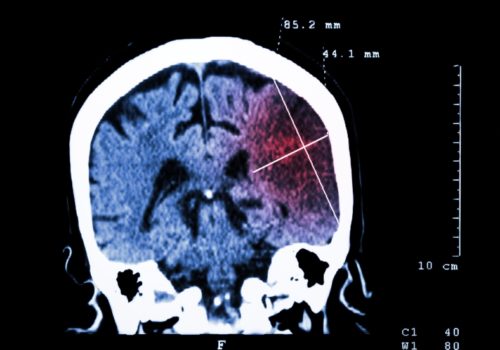Dr David Haslam, chair of the UK’s National Obesity Forum, provides a useful review of SGLT-2 inhibitors and their ability to lower glucose level, body weight and blood pressure in people with type 2 diabetes.
How to improve AF-related stroke prevention
Recent guidelines recommend two key steps to reduce ischaemic stroke in people with atrial fibrillation: 1. Improving the assessment of stroke risk and 2. Increasing the use of evidence-based anticoagulant therapy. In this article, leading specialists explain how to apply current guidelines to improve current practice in stroke prevention.
What’s new in FH genetics?
Recent advances in next generation sequencing (NGS) have reduced costs and made genetic diagnosis of familial hypercholesterolaemia (FH) quicker. This article reviews some of the technological breakthroughs in DNA testing in FH and benefits to patients and clinicians.
HEART UK – The Cholesterol Charity – has provided editorial support and review of this sponsored FH series.This article was made possible by an unrestricted educational grant by Sanofi, who had no control over content.
The effective management of gout
This article provides an overview of gout, including its optimal treatment, links with cardiovascular disease and the value of European and UK guidelines.
E-cigarettes: key issues and potential impact on public health
Electronic cigarettes, e-cigs, vaporisers and the various other names given to these new devices have become a phenomenon. Their popularity over the past few years has grown significantly, with an expansion of highstreet e-cigarette shops, marketing via the internet and social media, as well as traditional approaches using print advertisement and mass media campaigns. Despite their increasing usage largely by smokers and ex-smokers, e-cigarettes have divided opinion as to whether they can offer real benefits or they are potentially damaging to public health. While a recent Public Health England review concluded that e-cigarettes could be prescribed to help smokers to quit, the Welsh government plans to restrict their use in the same way as for conventional cigarettes. This paper will present some of the main issues that surround e-cigarettes and highlight the potential consequences good and bad that this new technology may bring.
Health-related quality of life among atrial fibrillation patients at diagnosis and one year later
Therapeutic interventions in atrial fibrillation primarily aim at reducing symptoms and improving or maintaining patients’ health-related quality of life (HRQoL). As most studies in this area have focused on randomised trial populations with highly symptomatic patients, this large observational study aims to assess HRQoL in a typical UK general practice setting.
Optimising medical therapy for stable angina patients
Percutaneous coronary intervention (PCI) has no benefit over optimising medical therapy (OMT) in the management of patients with chronic stable angina. Guidelines recommend an initial OMT approach; however, the use of medicines remains suboptimal. The aim of this study was to test whether a primary care clinical pharmacist service could enhance the management of patients with chronic stable angina.
Optimising the management of heart failure
Heart failure (HF) is an important cause of morbidity, mortality and misery for patients. However, there are many ways to improve and extend the lives of people with HF, if clinicians are familiar with and apply the numerous traditional, less mainstream and more innovative evidence-based treatment options. This article reviews current best practice in the management of chronic HF and of acute decompensated HF, and considers recent insights, controversies and innovations in this important, fast moving field.
Heart failure: improving outcomes today
The outlook is bleak for patients with untreated or suboptimally treated heart failure (HF). Conversely, optimising management (HF) improves patient survival and reduces hospital admissions. However, standards of care continue to vary, and many HF patients are still not receiving recommended therapy with disease-modifying drugs or specialist input to their care. Outcomes will only improve for all our HF patients if evidence-based clinical guidelines are implemented throughout the NHS.
NICE lipid modification guidelines: Statins for all?
The updated guideline on lipid modification from the National Institute for Health and Care Excellence (NICE), which was published in summer 2014, has continued to cause a great deal of controversy, both among health professionals and the general public. Now that the dust has settled just a little, it is time to review the messages of this guideline in detail rather than relying on the headlines.
Alcohol: A public health priority
Alcohol has been identified as one of Public Health England’s seven key priorities. After smoking and obesity, it is the biggest lifestyle risk factor for morbidity and mortality in the UK, accounting for 10% of disease and death. An estimated 9 million adults drink alcohol at levels detrimental to their health, with an estimated 1.6 million portraying signs of alcohol dependence. There is a misconception that drinking alcohol will only have a negative impact on health in those who binge drink or regularly get drunk. However, alcohol harms not only the individual drinker but also society as a whole, costing £21 billion a year, including annual direct costs to the NHS of £3.5 billion.
The increasing challenge of heart failure: Improving outcomes – Introduction
Despite advances in management, heart failure (HF) remains a deadly clinical syndrome, with a five-year survival of 58% compared with 93% in the matched general UK population. In this comprehensive supplement, my colleagues provide excellent reviews of all aspects of chronic and acute HF, from epidemiology, through diagnosis, lifestyle interventions, pharmacological and device therapies to implementation of current guidelines. Rather than regurgitating the content of their articles, I would like to pick out some areas worthy of thought and discussion. I will discuss challenges to clinicians in the diagnosis and management of HF, diagnostic use of natriuretic peptides (NPs), newer medical therapies and their future use, device therapies, and implementation of the evidence base into clinical practice.
























